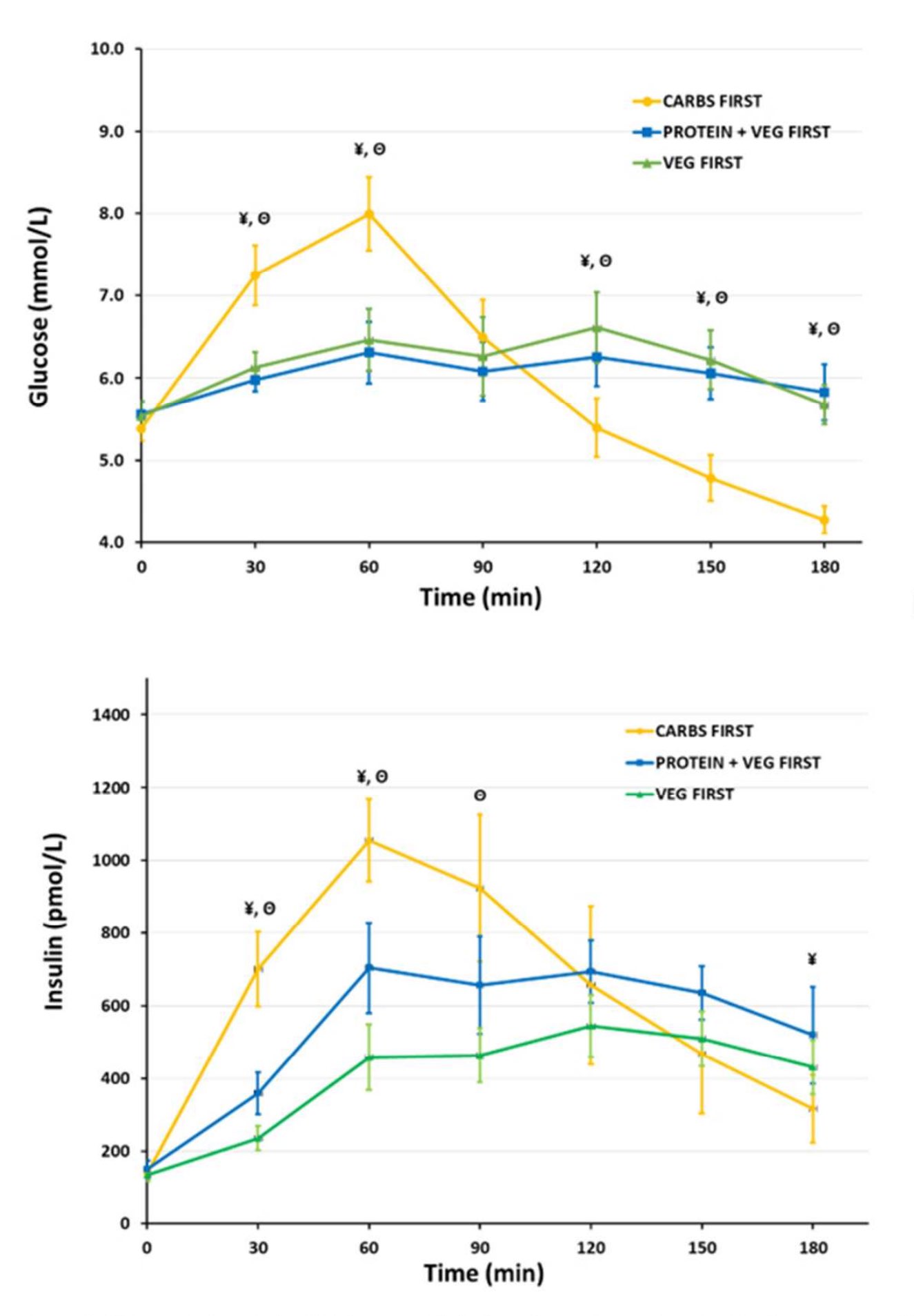Article: Impact of Nutrient Type and Sequence on Glucose Tolerance: Physiological Insights and Therapeutic Implications Frontiers in Endocrinology
Overview: This review article covers research on reducing post-prandial glucose spikes and troughs by simply changing the order in which you eat.
Consuming protein and fat before a meal has been shown to reduce postprandial glycemia by delaying gastric emptying. This could mean a pre-meal protein shake that doesn’t contain carbs – or a small protein-rich snack.
However, having something low-carb, high-protein before a meal isn’t always convenient.
Additional research, though, shows that the order in which you eat food in the meal also matters a lot. The studies show that eating protein and fat first (e.g., eating your meat first) and then consuming carbohydrates improves glucose tolerance significantly.
The paper explains: “The magnitude of the glucose-lowering effect of preload-based nutritional strategies is greater in type 2 diabetes than healthy subjects, being comparable and additive to current glucose-lowering drugs, and appears sustained over time.”
An earlier study – The impact of food order on postprandial glycaemic excursions in prediabetes – showed that simply eating a sandwich with bread and meat together caused a much greater glucose peak and drop than eating the meat and veggies off the sandwich first and then eating the bread a few minutes later.
Here are the results from that study showing that eating the bread from the sandwich first resulted in a much larger glucose and insulin spike and drop compared to eating the meat and lettuce from the sandwich first:

My takeaway: Many traditional meals were simply meat and vegetables, with carbs eaten afterward for dessert. As Pink Floyd said, “If you don’t eat your meat, you can’t have any pudding”.
